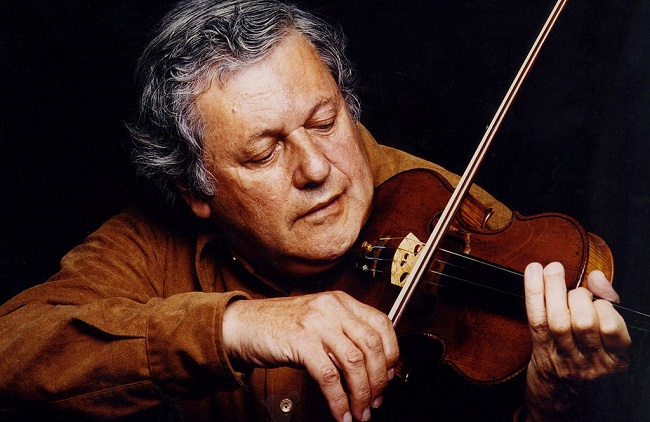Composers, Teachers, and New York
By Leon Botstei
This concert is exemplary of the original and ongoing mission of the ASO. The four composers on the program are all American, and they represent a thirty-year period, from Pearl Harbor to the Vietnam War, that witnessed unprecedented growth in the concert and classical music world of this country. These composers enjoyed enormous recognition and success in their lifetimes.
With the passage of time, however, memories fade and tastes change. Major figures are remembered largely as names in history books, and perhaps then only with a passing mention or a footnote. Their music is now more widely recorded and low resolution postings of performances can be found on the internet. Such a legacy, however, becomes academic, literally and figuratively.
Live performances of the music of the once central figures who have passed into history become rare, and not because the music falls short. Books can be reissued and paintings from the past taken out of storage and sold, downloaded, and hung in public gallery spaces more easily than music, especially music written for large forces, can be put on the stage. And music must be heard live and with an audience to be realized.
Music in the classical field deals with its history as if it were a winner-take-all proposition. But this is wrong because it distorts history and we rarely get the chance to change our minds. This concert of music by Mann, Fine, Druckman, and Schuman could catch someone’s eye because of the name Schuman, only to realize that it is not Robert, nor spelled the same way. The remaining three are not well enough known to be recognized by the audience we should be reaching. The ASO fights against these trends. We are determined to advocate for the unfairly neglected from the past and to push against the winds of fashion.
All these composers overlapped with one another and knew one another. They were centered, for a great part of their careers, in New York City, although some, like Fine, migrated to New York. And all of them taught. They were profoundly influential. Vivian Fine was a legend at Bennington. She, like Schuman, was a tireless organizer and performer in New York. This concert is a journey to our own past, to a different time, with different cultural ambitions and conflicts, and a time of great excitement, energy, confidence, growth, and faith in future generations of musicians and listeners.
It is a particular honor to perform a work by the late Robert Mann, the legendary violinist, quartet leader, and teacher. He was a fine composer and a great advocate of the new music of his time. Dimitri Mitropoulos, the fabulous conductor and music director of the New York Philharmonic, and also a partisan of the new, was himself a composer. Earlier this month I had the privilege of conducting the first performance of a new edition of a Concerto Grosso by Mitropoulos in Athens. Mitropoulos recognized Mann’s gifts and premiered his Fantasy for Orchestra, which opens tonight’s concert. Years ago Mann mentioned the work to me, in passing and all too modestly. The ASO dedicates this performance to Robert Mann’s memory. I would like to think he would be pleased to see the work revived and performed again in Carnegie Hall.
William Schuman is the best-known composer on this program, and his Symphony No. 3 is the one work being performed tonight to approximate a repertory staple. This symphony is a contender for the status of one of the major American symphonies of the twentieth century. We hope that it is brought back regularly, and that more of Schuman’s music gets played. Schuman, like his contemporary Leonard Bernstein, was a man of many talents. He was, like Fine, a terrific organizer and institutional leader, somewhat in the mold of musicians who devoted their time and energy to creating and leading institutions designed to sustain music. He headed Juilliard and Lincoln Center. If Rimsky-Korsakov and Gabriel Fauré could manage it, why not William Schuman?
Jacob Druckman was a widely admired composer until his untimely death in 1996. He taught for many years at Bard and two of his students later became famous as members of Steely Dan. He then moved to Juilliard, where he remained. In his lifetime he won many prizes and was noted for the subtlety, refinement, and distinctiveness of his structures and sonorities.
Vivian Fine was not only a great teacher and an avid performer, but mentor to many generations of American composers. She exemplifies the spirit of this program: a conviction in the potential of new music in America, great craft and ambition, a determination to reach the public, and an abiding belief in how important musical culture is to this city and the nation.

